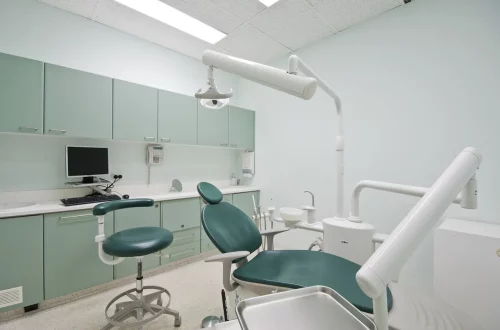
Understanding Dog Rapid Breathing While Sleeping: Causes and Solutions
Understanding a dog’s behavior can often be a challenging task for pet owners, especially when it comes to sleep patterns. One of the more perplexing phenomena that can occur is rapid breathing while a dog is asleep. This behavior can be surprising, prompting concern among pet parents who may wonder whether their furry companion is experiencing distress or discomfort.
Dogs, like humans, go through various sleep stages, including REM (Rapid Eye Movement) sleep, which is crucial for their mental and emotional well-being. During this time, they may exhibit twitching, vocalizations, or rapid breathing. While these actions can be perfectly normal, they may also be indicative of underlying issues. Understanding the reasons behind rapid breathing during sleep can help owners differentiate between normal sleep behavior and potential health concerns.
In this article, we will delve into the possible causes of rapid breathing in dogs while they sleep, explore how to identify when this behavior is concerning, and discuss potential solutions and remedies. By gaining insight into your dog’s sleeping habits, you can ensure that your pet remains healthy and happy throughout their life.
Normal Sleep Patterns in Dogs
To comprehend rapid breathing in dogs, it’s vital to first understand their sleep patterns. Dogs typically experience several sleep stages, including light sleep, deep sleep, and REM sleep. During the light sleep phase, dogs may appear to be dozing but can quickly wake up. In contrast, deep sleep is when their bodies rest and recover, and this phase is crucial for their overall health.
The REM sleep phase is particularly interesting because it’s when the brain is most active, and dreams may occur. This is also the stage where rapid eye movements happen, and many dogs will show physical signs of dreaming, such as twitching or breathing changes. Rapid breathing during this stage is generally normal and reflects the dog’s engagement in dreaming.
However, various factors can influence a dog’s sleep quality and patterns. Age, breed, and overall health play significant roles in how a dog sleeps. For instance, puppies and younger dogs tend to sleep more soundly and have more frequent REM sleep compared to older dogs that may experience disrupted sleep patterns. Similarly, certain breeds are predisposed to specific sleep behaviors based on their size, energy levels, and temperaments.
Recognizing these normal sleep patterns can help owners assess when rapid breathing may be a cause for concern versus a regular occurrence. It’s essential for pet owners to observe their dog’s behavior and note any changes over time, as these can indicate shifts in their health or well-being.
Common Causes of Rapid Breathing During Sleep
There are several reasons why a dog may exhibit rapid breathing while asleep, some of which are completely benign.
One common cause is dreaming. Just like humans, dogs experience dreams during REM sleep. If your dog is dreaming about chasing a squirrel or playing with other dogs, you may notice them breathing rapidly or even whining softly. This behavior is usually harmless and part of the natural sleep cycle.
Another reason for rapid breathing could be related to environmental factors. Heat and humidity can cause dogs to breathe more quickly, even when they are asleep. This is especially true for breeds with shorter snouts, such as Bulldogs and Pugs, who may have more difficulty regulating their breathing in warm conditions.
Anxiety and stress can also manifest in a dog’s sleep patterns. If a dog is experiencing anxiety due to changes in their environment, such as moving to a new home or the arrival of a new family member, they may show signs of rapid breathing during sleep. This is their body’s way of reacting to stress, even in a resting state.
Health issues can also play a critical role in rapid breathing. Conditions such as respiratory infections, allergies, or more serious health problems like heart disease can lead to changes in breathing patterns. If you notice that your dog is consistently breathing rapidly while asleep, and especially if this is accompanied by other symptoms like coughing, lethargy, or a lack of appetite, it’s essential to consult a veterinarian.
Understanding these common causes can empower pet owners to monitor their dogs more effectively and take appropriate action when necessary.
When to Seek Veterinary Advice
While rapid breathing during sleep can often be normal, there are certain situations where it becomes crucial to seek veterinary advice. If your dog’s rapid breathing is accompanied by any of the following symptoms, it’s important to contact your veterinarian as soon as possible.
Firstly, if your dog is experiencing excessive panting or labored breathing during waking hours, this could indicate a more serious issue. Rapid breathing that persists outside of sleep may be a sign of respiratory distress or heart problems.
Additionally, look for signs of coughing, lethargy, or changes in appetite. If your dog seems unusually tired and is not engaging in their regular activities, this may point to an underlying health problem that needs to be addressed.
Another critical factor to consider is the duration and frequency of the rapid breathing episodes. If you notice that your dog is frequently exhibiting this behavior, or if it lasts for an extended period, it’s advisable to get a professional opinion.
Regular veterinary check-ups are also essential for monitoring your dog’s health. Your veterinarian can help identify any potential issues early on and provide guidance on how to maintain your dog’s overall well-being.
Understanding the signs that indicate a need for veterinary care can help ensure that your dog remains happy and healthy.
Practical Solutions and Remedies
If you find that your dog’s rapid breathing is due to benign causes, there are several practical solutions and remedies you can implement to ensure better sleep quality for your pet.
Creating a calm and comfortable sleeping environment is key. Ensure that your dog has a designated sleeping area that is away from noise and distractions. Soft bedding and a secure space can help your dog feel safe and relaxed, which may reduce anxiety-related rapid breathing.
Monitoring the temperature and humidity levels in your home can also make a difference. Dogs are sensitive to heat, so keeping their sleeping area cool and well-ventilated can help regulate their breathing. If it’s hot outside, consider using fans or air conditioning to maintain a comfortable atmosphere.
Regular exercise and mental stimulation are vital for a dog’s overall health. A well-exercised dog is likely to enjoy deeper, more restful sleep. Engaging in daily walks, playtime, and interactive toys can help alleviate pent-up energy and reduce stress levels.
If anxiety is a concern, consider exploring calming remedies such as anxiety wraps, calming music, or even natural supplements designed to promote relaxation. Consulting your veterinarian for recommendations on safe products can be beneficial.
Lastly, maintaining regular veterinary check-ups can help catch any underlying health issues early. Your veterinarian can provide tailored advice based on your dog’s specific needs.
In conclusion, understanding rapid breathing in dogs while sleeping involves recognizing both normal behaviors and potential health concerns. By being observant and proactive, you can ensure that your furry friend enjoys restful sleep and a healthy, happy life.
**Disclaimer**: This article is for informational purposes only and should not be considered medical advice. Always consult a veterinarian for health-related concerns regarding your pet.




